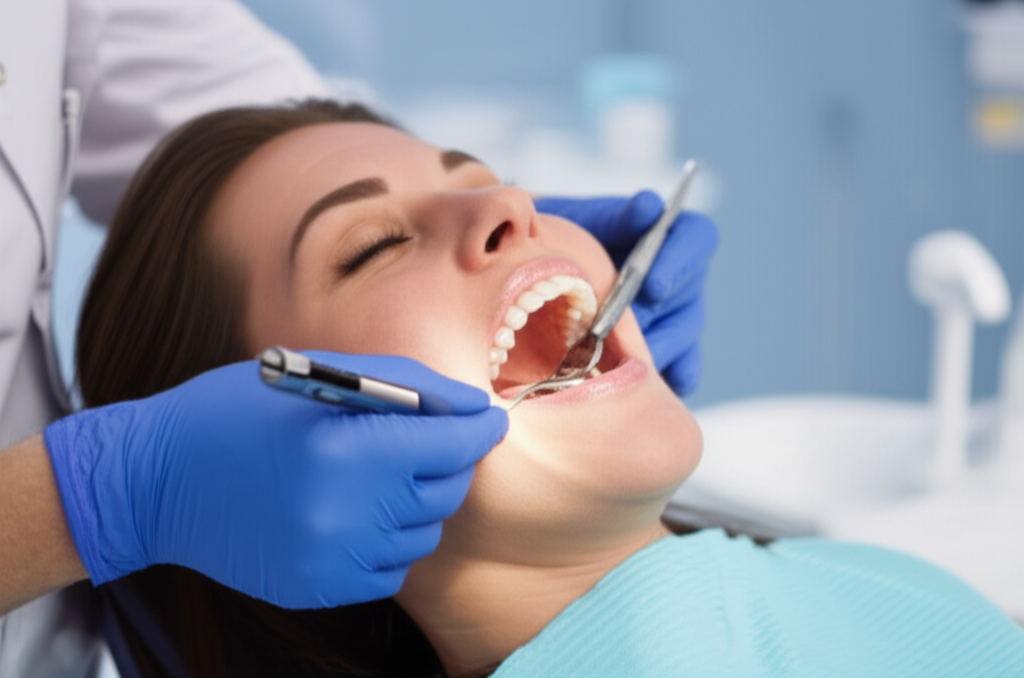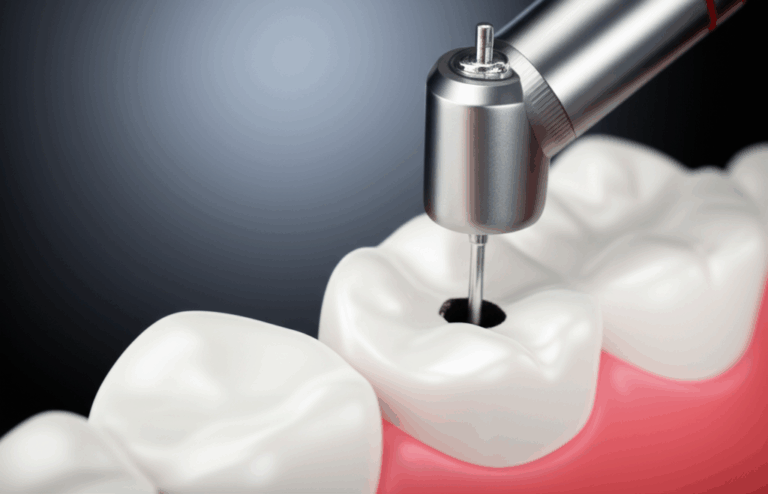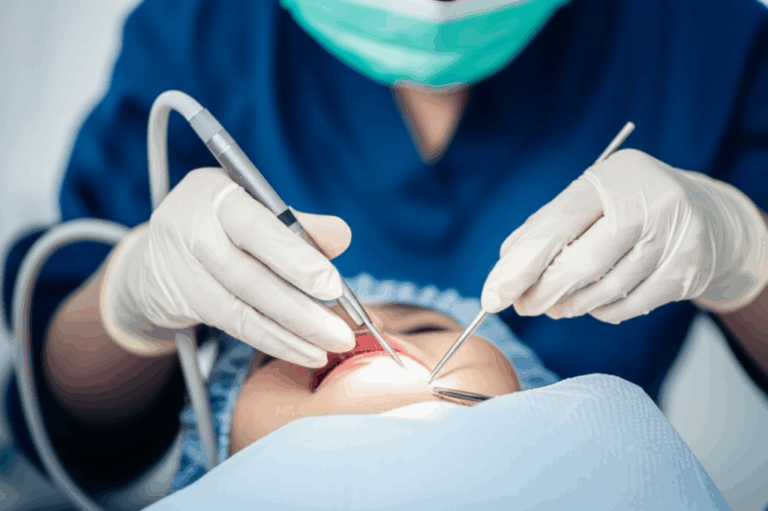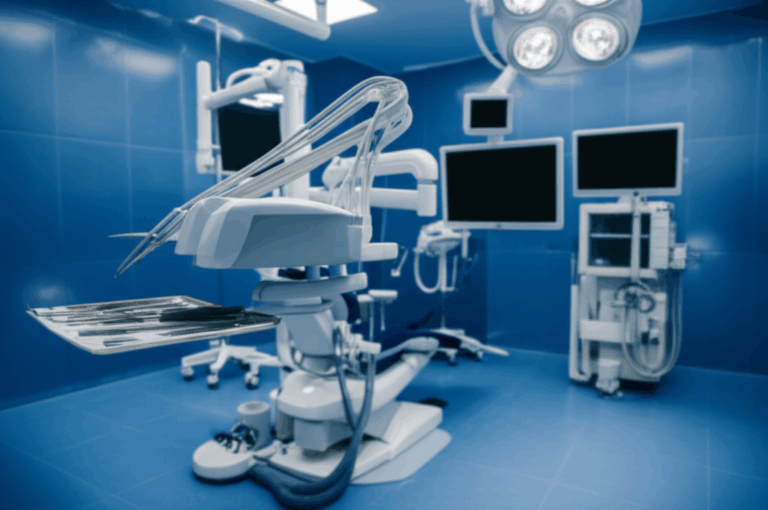
Can a Dental Technician Become a Dentist? Your Easy Guide to This Career Change
Have you wondered if someone working in a dental lab can become a dentist? If you’re a dental technician and dream of taking on a bigger job, helping patients, or earning more money, you’re not the only one. In this guide, I’ll show you what you need to know about making this move—like the steps you’ll need to take, the hard parts, and how your background helps you. After reading, you’ll know what’s possible and how to get there. Let’s jump in!
Table of Contents
What Does a Dental Technician Do?
Dental technicians are the people behind the scenes in dentistry. We are the folks who make crowns, bridges, dentures, and other things like retainers and night guards. We work in labs, not with patients, but we help every smile you see.
- Dental lab techs use science, art, and hand skills.
- We learn about tooth shapes, materials, and how teeth fit together.
- We use both hand tools and machines, and sometimes new tech like 3D printers.
But here’s the thing—we don’t see or talk to patients. We work from molds, impressions, or digital scans the dentist gives us. Some top labs use modern tech, like with a digital dental lab or a ceramic lab for the best-looking crowns.
Can a Dental Technician Really Become a Dentist?
Yes—you can change from being a dental technician to becoming a dentist! But here’s the truth: it’s not just moving up, it’s a whole new job.
- Problem: A lot of dental techs think lab experience lets them skip steps to be a dentist, but you need to do all the regular dentist training.
- Agitate: Imagine feeling ready, then finding out your earlier training doesn’t count for dental school. That can waste time and money.
- Solution: Knowing the real process helps you plan better and make a smart choice.
You must start from the beginning: This means you need the right classes, pass tests, and finish all of dental school—only then can you be a licensed dentist.
Why Do Dental Technicians Want to Become Dentists?
Let’s talk about why, because that really matters.
Working with Patients
Many techs, including me, want to actually help people, not just work in a lab. As a dentist, you get to do that—help people with their smiles.
More Job Choices
A dentist can figure out dental problems, treat them, and handle patient care. You have a lot more say in what you do. You even write your own prescriptions.
Higher Pay
Dentists usually earn a lot more than dental technicians. It’s a big step up in pay.
Using What You Already Know
Techs know about teeth, the materials, and how things are supposed to look. This makes some parts of dental school easier.
Wanting a Challenge
Sometimes you just want something new or harder. Becoming a dentist is tough but can feel great when you succeed.
What Are the Main Steps on the Pathway?
Here’s the real process from lab worker to dentist:
See if you have a bachelor’s degree and the right science classes.
If not, you’ll have to finish classes like biology, chemistry, and maybe physics.
Study for the DAT if you’re in North America, or the UCAT/GAMSAT if in the UK or Australia.
Dentist schools want you to shadow dentists, volunteer, or work with patients so you understand what the job is like.
You’ll need to write why you want to be a dentist, get reference letters, and fill out applications.
Show that you are friendly, can talk to people, and really want to be a dentist.
Look for scholarships, grants, or student loans.
Pass all the classes and required patient work.
You need to pass the board tests to legally work as a dentist.
Once you are a dentist, you could do more training to become things like an orthodontist or oral surgeon.
What Are the Educational Prerequisites?
Dental technicians don’t get to skip the usual steps to be a dentist, but your background might help with learning.
Regular Requirements:
- Bachelor’s degree (in most places)
- Needed classes:
- Basic biology (with lab)
- Chemistry (with lab)
- Physics (with lab)
- Some schools need more, like biochem, psychology, or English
- Good grades (often above 3.0 out of 4.0)
Entrance Tests:
- North America: Dental Admission Test (DAT)
- UK: University Clinical Aptitude Test (UCAT)
- Australia: Graduate Medical School Admissions Test (GAMSAT)
Extra Experience:
- Shadowing: Follow dentists to see the job up close.
- Recommendation Letters: At least two, from science teachers or working dentists.
- Personal Statement: Explain why you want to be a dentist and why now.
What Is Dental School Like?
Dental school is its own journey. It usually takes 4 to 5 years and has two main parts.
First Years (Preclinical):
You’ll study:
- Tooth shapes, mouths, and materials
- Biochemistry, body science, and germs
- Dental law and ethics
You’ll make models, practice on fake teeth, and learn simple skills. Get ready for lots of books, tests, and lab work.
Later Years (Clinical):
This is when you see and work with real patients:
- Care for people (with help from teachers)
- Find out what’s wrong and plan care
- Fill teeth, fix crowns and bridges
- Try different fields like orthodontics, gum care, and surgery
- Handle patient care from start to finish
Schools with new labs, like those using digital dental lab tech, can help you learn faster.
What About Licensing and After Dental School?
Graduating dental school is just one step.
Licensing:
- Pass board tests (for your country or state). These test your clinical skills, knowledge, and rules.
- In the US, that means the National Board Dental Exams and a hands-on exam.
Specialties (If You Want):
After becoming a dentist, you could learn more about:
- Braces (orthodontics)
- Crowns (prosthodontics)
- Surgery (oral surgery)
- Root canals (endodontics)
- Children’s teeth (pediatric dentistry)
Owning a Practice or Leading a Team:
Some dentists run their own clinics or labs or manage teams. This can be the top of the dental career ladder.
What Are the Advantages for Dental Technicians?
Changing from tech to dentist has some good sides.
You Know a Lot Already
You understand teeth, materials, and how to make things look nice. This helps with making crowns and fixing teeth.
Good Hand Skills
Working in a lab gives you steady hands. This is great for careful dental work.
Problem Solving and Making Things Look Good
You know how to make things look natural and solve tricky problems. This helps a lot when fixing front teeth.
You Know Both Sides
Since you know lab work and will learn patient care, you can talk easily to both sides. Labs like china dental lab respect this.
What Are the Biggest Challenges?
Here’s where things can be tough.
Time and Money
Dental school costs a lot. Tuition in North America can be over $200,000, and school takes 4 to 5 more years. You need a plan for money—scholarships or loans can help.
Hard Schoolwork
You may need to re-take some classes if your old degree didn’t include science. Tests, labs, and caring for patients can be very hard. Many people think dental school is tougher than medical school.
Changing Your Job Role
You’ll go from making dental pieces in a lab to helping and talking to people. Not everyone likes working directly with people, so make sure this job suits you.
Are There Other Dental Careers to Consider?
If you want to work with people but not spend years in school, there are other choices.
Dental Therapist or Dental Hygienist
Both work directly with patients but need less school. Dental hygienists clean teeth, therapists can fix small problems.
Advanced Lab Work
You can move up in the dental lab, getting master certifications. Labs like dental ceramics lab let you specialize in things like ceramic crowns.
Teaching or Advising
If you like to share ideas, consider teaching or training others in new dental technology, like digital tools.
Practice Manager or Consultant
Many labs and clinics need people who know about lab work and people skills to help things run smoothly.
FAQ
Q: Do dental technicians get credit for old classes in dental school?
A: Hardly ever. Most schools make you do all the classes again. Your experience might help with interviews, though.
Q: How long does it take to go from dental tech to dentist?
A: With the right degree and classes, dental school takes 4 to 5 years. If you need more science classes, add 1-2 years.
Q: Can techs go straight into specialties?
A: No. You must first become a regular dentist, then choose specialties.
Q: Is there financial help for career changers?
A: Yes. There are scholarships, grants, and loans—some just for healthcare.
Q: What’s the difference between DDS and DMD?
A: They’re different names for the same thing—both mean you can work as a dentist.
Summary: What’s Most Important to Remember?
- Yes, dental technicians can become dentists, but it’s lots of work and school.
- You’ll need a degree, science classes, tests, and all of dental school.
- Your background helps in knowing materials and having good hand skills.
- Hard parts are school costs, school difficulty, and changing to a people-focused job.
- There are other dental jobs if you want choices.
- Plan well, ask questions, and follow what excites you.
Useful Links:
- Learn more about new digital dental lab technology.
- See how things are done at china dental lab.
- Get into special work at a dental ceramics lab.
Take big steps, get ready, and you could change your job—and lots of smiles! If you feel ready, contact a dental school for advice, and check out top labs if you want to keep learning along the way. Good luck!








